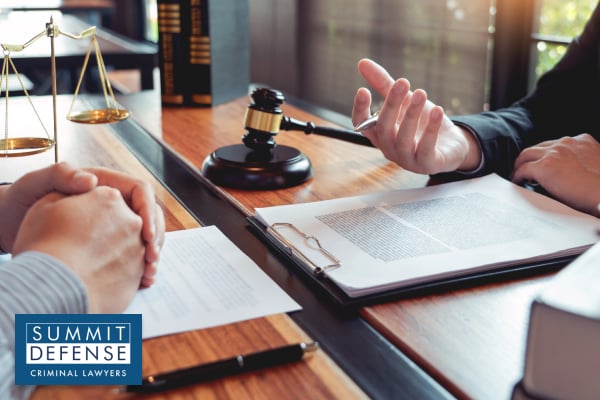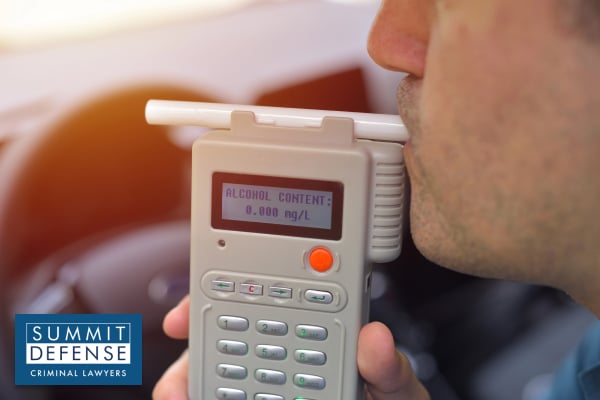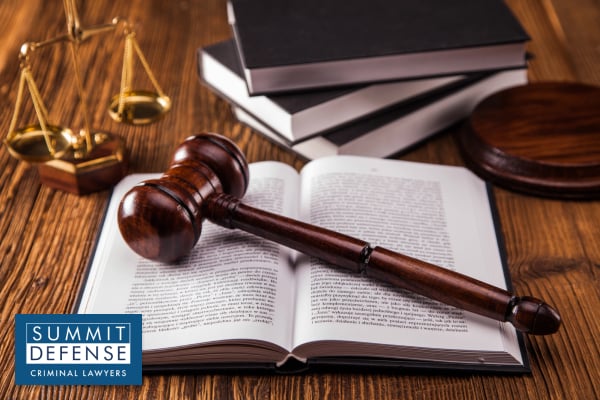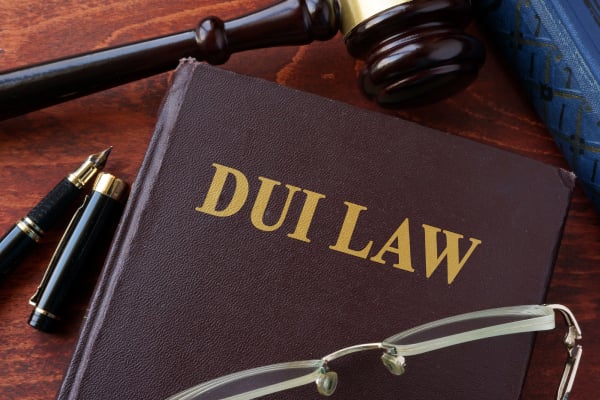Why Your License Is at Risk After a DUI Arrest
After a DUI arrest, your driver’s license is immediately at risk due to two separate actions: one from the DMV and one from the criminal court. Even if you haven't been convicted yet, the DMV can start a dmv administrative suspension process, which can result in a license suspension within days of your arrest.
This means that most drivers face consequences quickly, sometimes before they fully understand their legal options. If you do not request a DMV hearing in time, your license could be suspended automatically. On top of that, if you later receive a DUI conviction in court, a second license suspension could follow, making things even worse for your personal and professional life.
By working with a skilled DUI defense attorney, you can fight both the administrative suspension and the court penalties. Summit Defense Criminal Lawyers helps you understand each part of the process so you can take the right steps to keep your driver’s license.
Administrative vs. Criminal Penalties
When you're arrested for DUI, you don’t just face a criminal offense in court, you also face a separate action by the DMV, which can lead to an administrative suspension of your driver’s license. These two processes are completely different, but both can take away your ability to drive.
The DMV process is called a dmv administrative suspension, and it starts almost immediately after your arrest. You usually have only 10 days to request a hearing, or the license suspension will begin automatically. This is not a criminal matter, but it can still impact your life just as much. On the other hand, the court handles the criminal case, which can result in a DUI conviction, jail time, fines, and another license suspension.
A skilled DUI attorney will help you manage both situations at the same time. Summit Defense Criminal Lawyers can work to delay the DMV suspension and fight the criminal charges, giving you the best shot at a favorable outcome.
Automatic License Suspension by the DMV
One of the first things that happens after a DUI arrest is that the DMV moves to suspend your driver’s license, even if you haven’t gone to court yet. This is called a dmv administrative suspension, and it can take effect just 30 days after your arrest unless you ask for a hearing in time.
The DMV doesn’t need a DUI conviction to start this process, it begins just based on the police report and your breath test or blood test results. If your blood alcohol concentration was over the legal limit, the DMV will assume you were driving under the influence.
You must act fast to stop this from happening. By working with an experienced dui attorney, you may be able to request a hearing, present evidence, and stop the license suspension before it starts.
Court-Ordered Suspension After Conviction
If you are found guilty in court, a DUI conviction will almost always lead to a driver’s license suspension, and in some cases, the suspension period can be even longer than the one issued by the DMV. The court handles the criminal offense, and once convicted, the judge may order a suspension based on the facts of your dui case, your prior offenses, and whether you had any multiple DUI convictions.
This court-ordered license suspension is separate from the DMV’s action, so even if you already served an administrative suspension, you may face another one after your criminal case ends. The court may also require you to install an ignition interlock device or attend alcohol education classes before your driving privileges can be restored.
Having a strong DUI defense attorney can help you avoid the harshest outcomes by arguing for a reduced charge or alternative penalties that protect your ability to drive.
What a DUI Lawyer Can Do Right Away
 After a DUI arrest, you don’t have much time to protect your driver’s license. A good DUI lawyer can take fast action to help you avoid a suspended license and give you the best chance at staying on the road.
After a DUI arrest, you don’t have much time to protect your driver’s license. A good DUI lawyer can take fast action to help you avoid a suspended license and give you the best chance at staying on the road.
Request a DMV Hearing Before the Deadline
The DMV gives you only 10 days to request a hearing after your DUI arrest. If you miss this deadline, the administrative suspension will begin automatically. A DUI lawyer will make sure the hearing request is submitted right away, giving you a chance to fight the license suspension.
During the hearing, your lawyer can challenge the results of the chemical test, the report filed by the arresting officer, and whether you were properly informed of your rights. If the DMV is convinced there were problems with the arrest, you may be able to keep your driver’s license while your case continues.
Stop the Automatic Suspension Temporarily
Once your lawyer requests the DMV hearing, the automatic suspension is usually put on hold. This gives you a temporary license, which lets you drive legally while the hearing is being scheduled and prepared. This can take several weeks or even longer.
During this time, your lawyer can build your DUI defense, gather evidence, and find mistakes in the process that could help you win. This delay is valuable, especially if you rely on your license for work, school, or family responsibilities.
Review the Evidence Behind the Arrest
A strong defense starts with a full case review. Your DUI lawyer will carefully examine the police report, results of the breath test or blood test, and all details about the arrest. This includes whether the arresting officer had reasonable grounds to stop you and whether proper procedures were followed.
In some cases, the test results may be unreliable, or you may not have been properly informed about your rights. If the lawyer finds issues like these, they may be able to challenge the DMV case and fight for a favorable outcome in both the DMV hearing and criminal court.
DMV Hearings and License Defense
The DMV hearing is your first chance to protect your license. A lawyer who understands this process can make a big difference in what happens next.
What Happens at a DMV Hearing
A DMV hearing is not a trial, but it still plays a big role in whether your driver’s license stays active. The hearing officer looks at whether your blood alcohol concentration was over the legal limit, whether the chemical tests were done properly, and if the arresting officer followed the rules.
Your lawyer can question the officer, present witnesses, and argue that the evidence is not strong enough for a license suspension. Winning this hearing means you get to keep your license while your criminal case moves forward.
How Lawyers Challenge BAC Results or Improper Stops
Your DUI lawyer can often challenge how the tests were done. If the breath test machine wasn’t working correctly or the blood test sample was handled poorly, that can create reasonable doubt. If the stop was illegal or made without reasonable grounds, your lawyer can argue that all evidence gathered afterward should be thrown out.
These challenges are key parts of your DUI defense, especially if you’re facing a DMV administrative suspension or later court penalties.
Witnesses and Evidence That Help Your Case
At the DMV hearing, your lawyer can bring in witnesses who saw what happened, expert testimony to question the test results, and evidence that supports your story. Sometimes surveillance footage or call logs can show that the timeline or officer’s report doesn’t match what really happened.
These details can help prove that the DMV does not have enough evidence to take your driver’s license, even before your day in court.
Fighting the DUI Charge in Criminal Court
 While the DMV process is one part of the problem, the court case can lead to even more serious penalties if you’re convicted.
While the DMV process is one part of the problem, the court case can lead to even more serious penalties if you’re convicted.
Suppressing Evidence (Breath Tests, Police Reports)
If your lawyer finds out that the breath test was done wrong or that the arresting officer didn’t follow proper procedures, they can file a motion to suppress that evidence. This means the judge may rule it can’t be used against you in court.
Without key evidence, the prosecution may have to reduce the DUI charges or even drop them altogether. A good lawyer knows how to find these weak points and use them to your advantage.
Getting Charges Reduced or Dismissed
In some cases, your lawyer may be able to work out a deal to reduce your DUI charges to something less serious like reckless driving, or even a wet reckless charge. If there are enough problems with the case, the prosecutor might dismiss the charges completely.
This can protect you from a DUI conviction, avoid jail time, and stop a second license suspension from the court.
How a Better Outcome Can Protect Your Driving Privileges
Avoiding a conviction not only keeps your record cleaner, it also protects your ability to drive. Without a court conviction, you may not have to serve a longer driver’s license suspension or face the same requirements as someone with multiple DUI convictions or prior offenses.
A good outcome in your criminal case can also make it easier to qualify for a restricted license or full reinstatement later on.
Options to Keep Driving After a DUI
Even if your license is suspended, there are ways you may be allowed to drive legally again, but the right steps must be taken.
Restricted or Hardship Licenses
If your driver’s license is suspended, you may be able to apply for a restricted license or a hardship license. This lets you drive to work, school, or court-ordered programs, even while serving a suspension.
Most drivers must meet certain conditions, like completing part of their sentence or enrolling in DUI school, before they can apply. Your lawyer will help you meet the rules and apply correctly.
Ignition Interlock Device Programs
Another way to regain restricted driving privileges is through an ignition interlock device program. You install a device in your car that checks your breath for alcohol before it allows the engine to start.
For many people, using this device is the only way to keep driving legally after a DUI conviction. It may also help shorten the total suspension period, especially for first offenders.
Alcohol Education Courses and Reinstatement
To get your license reinstated, you often must complete DUI education programs and pay a reinstatement fee. These programs are required after both DMV and court suspensions, especially for drivers with prior offenses.
Once the program is done and your time is served, your lawyer can guide you through the administrative process to restore your driver’s license.
Why Legal Experience Makes a Difference
 DUI laws are complex, and every step matters. Having someone who knows the system can make the difference between losing your license and keeping your freedom to drive.
DUI laws are complex, and every step matters. Having someone who knows the system can make the difference between losing your license and keeping your freedom to drive.
Navigating DMV and Court Systems
The DMV and the criminal courts follow different rules, deadlines, and procedures. A lawyer who knows both can help you make smart decisions, avoid mistakes, and fight your license suspension on both fronts at the same time.
Without legal help, many drivers lose their driving privileges simply because they didn’t understand the process.
Understanding Local Rules and Judges
Each county, courthouse, and judge can handle DUI cases differently. A local DUI defense attorney will know how things work in your area, whether you're in Santa Rosa or elsewhere in the Bay Area.
This knowledge helps your lawyer prepare a defense that fits local rules and gives you the best chance at a favorable outcome.
Personalized Defense Strategies That Work
No two DUI cases are the same. Your lawyer should build a strategy that fits your specific situation — whether you're a first offender, a commercial driver, or someone with multiple DUI convictions.
Summit Defense Criminal Lawyers focuses on details that others may miss, giving you a defense built around your needs, goals, and future.
FAQs
 If you were arrested for DUI, you may lose your driver’s license fast. Many people don't realize that license suspension can happen even before going to court. This can affect your job, family, and daily life. You need to act quickly.
If you were arrested for DUI, you may lose your driver’s license fast. Many people don't realize that license suspension can happen even before going to court. This can affect your job, family, and daily life. You need to act quickly.

 After a DUI arrest, you don’t have much time to protect your driver’s license. A good DUI lawyer can take fast action to help you avoid a suspended license and give you the best chance at staying on the road.
After a DUI arrest, you don’t have much time to protect your driver’s license. A good DUI lawyer can take fast action to help you avoid a suspended license and give you the best chance at staying on the road. While the
While the  DUI laws are complex, and every step matters. Having someone who knows the system can make the difference between losing your license and keeping your freedom to drive.
DUI laws are complex, and every step matters. Having someone who knows the system can make the difference between losing your license and keeping your freedom to drive. A DUI arrest doesn’t have to ruin your life, and it doesn’t have to take away your license either. The sooner you take action, the more options you have to protect yourself. At
A DUI arrest doesn’t have to ruin your life, and it doesn’t have to take away your license either. The sooner you take action, the more options you have to protect yourself. At 
